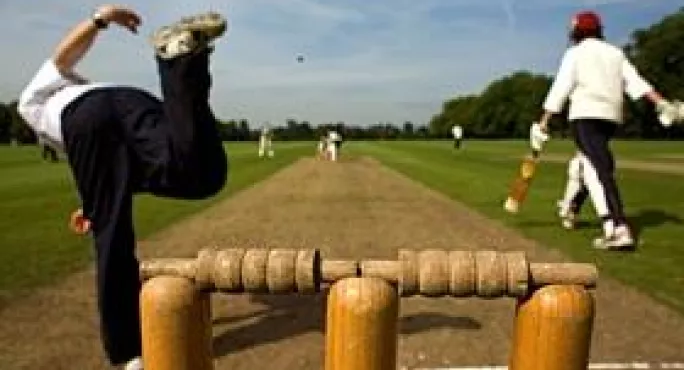Second-rate independents `fob off’ foreign pupils

“Second-rate” UK private schools are packing their boarding houses with overseas pupils to fill a growing number of empty spaces, according to an influential schools guide.
Struggling schools have “houses full of mature Chinese pupils” who plug themselves into the internet and “refuse to join house activities”, the latest edition of The Good Schools Guide warns. One school’s dining room was described as “a babble of gambling cliques - (that) could have been in Beijing”.
The comments come amid concerns that some foreign parents are being misled when sending their children to school in the UK, expecting them to receive an authentic British education and mix with British pupils.
But increasingly, as fees have slipped out of the reach of many UK parents and the downturn affects pupil numbers, some boarding schools are over- exploiting rich families abroad, the guide says. If the proportion of overseas pupils in a school grows beyond about 20 per cent, the “British” feel of the school - its principal selling point to foreigners - is thought to be compromised, it adds.
The guide’s editors told TES that while most schools struck a good balance and benefited from a diverse pupil intake, a minority still “did not follow best practice” and over-recruited from foreign countries.
The Independent Schools Council’s annual census showed that there were 26,376 non-British pupils at affiliated UK independent schools in 2012, up by 5.8 per cent on the previous year. More than 3,700 pupils were Chinese, 6,000 were from Hong Kong and 2,300 were German. The fastest growing pupil numbers were from Russia, Spain and other parts of Asia. However, these figures did not include foreign pupils attending hundreds of smaller, non- affiliated private schools.
“The best schools in this country are outstanding by any standards. Beware, though, of being fobbed off with second rate,” the guide says. Janette Wallis, senior editor of The Good Schools Guide, added: “The best schools are taking in pupils from abroad and they are a great asset to everybody, but there are still some schools that aren’t great where best practice goes by the wayside from time to time.”
Andy Waters, head of Kingsley School, an all-age private school in Bideford, Devon, actively recruits pupils from abroad and 50 out of the 100 boarders are overseas pupils. The school has a total of 430 pupils. He said many rural boarding schools had a “certain reliance” on the overseas market. Staff from Kingsley visit Hong Kong to recruit pupils twice a year, and the school has agents in mainland China.
Mr Waters said parents should be less concerned about the numbers of foreign boarders, and more focused on a school’s ability to cater for them. The overall make-up of the school, both boarding and day, was also more important, he said.
“The key thing is whether the school has good communications with parents, deals properly with visa responsibilities, guardianship and transport and has good provision in the subjects they want to do. It is also important to get the after-school activities right,” Mr Waters added.
Elsewhere, the guide warns parents to be wary of agencies that take “fat” commissions to place foreign pupils into certain schools. Parents should be wary of considering schools “just because they are famous” and should not assume that league table positions are a good indicator of school quality. They are warned to be wary of “scholarships” that may turn out to have “zero or miniscule financial value”.
Parents are also told that they should be prepared to promote themselves to schools where they would like to send their children. “Be prepared to `sell’ yourself a bit to the school, too, if you have a fascinating line of work (think Russian cosmonaut!),” the guide said.
Hilary Moriarty, director of the Boarding Schools’ Association, said the growth in international student numbers indicated the strength of the “British education brand” and “the capacity of the schools to move and change with the times”.
She said international pupils were now looked after far more professionally. “In any decision as important as a child’s school, it is well to beware of the middleman, and the personal relationship between parents and school is a vital part of ensuring the welfare of the child,” she added.
Recruiting abroad
Overseas pupils in Independent Schools Council-affiliated boarding schools: Source: ISC Census, 2012. Original headline: Foreign pupils `fobbed off’ by second-rate independents Photo credit: Getty
Keep reading for just £1 per month
You've reached your limit of free articles this month. Subscribe for £1 per month for three months and get:
- Unlimited access to all Tes magazine content
- Exclusive subscriber-only stories
- Award-winning email newsletters



